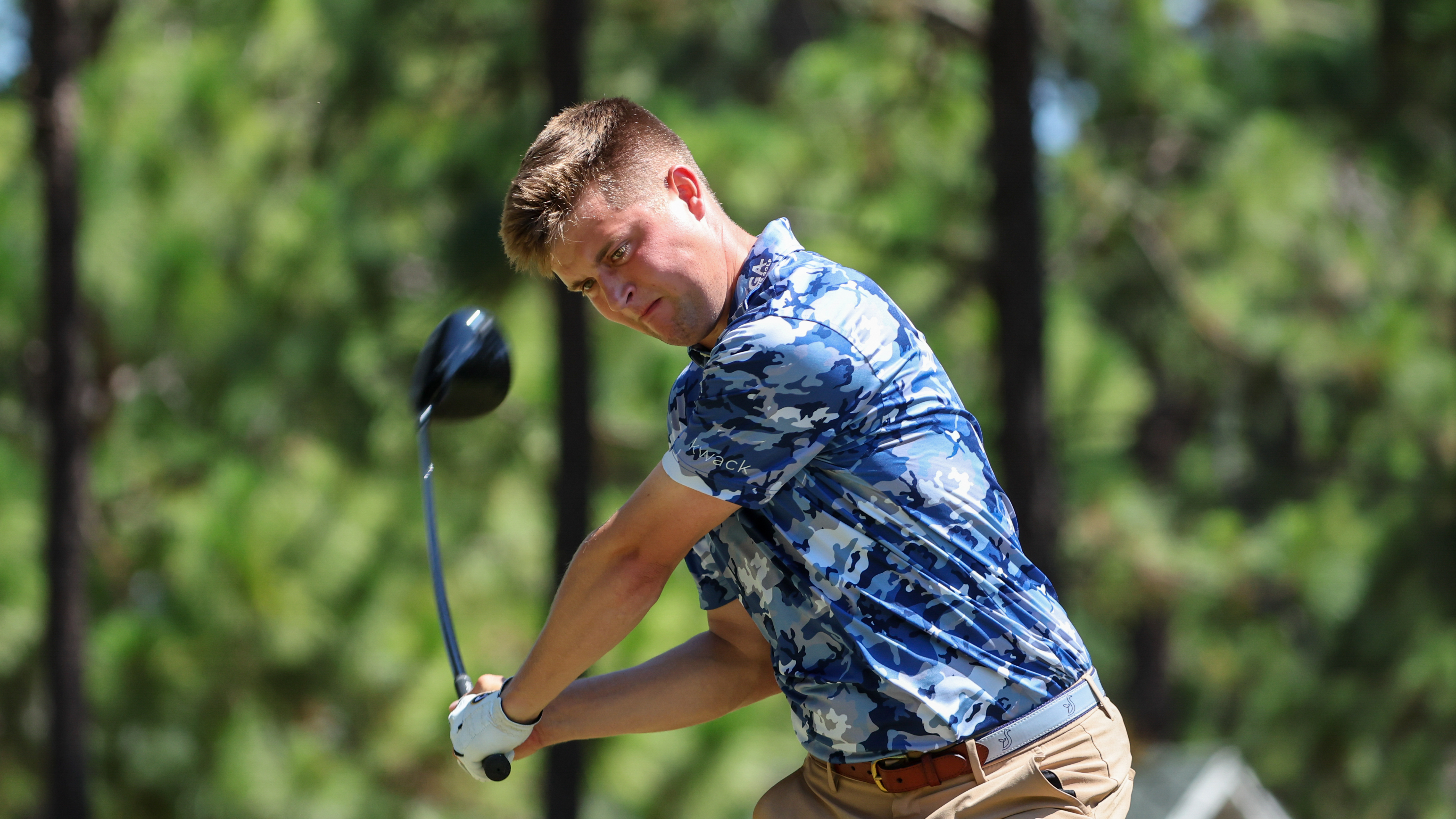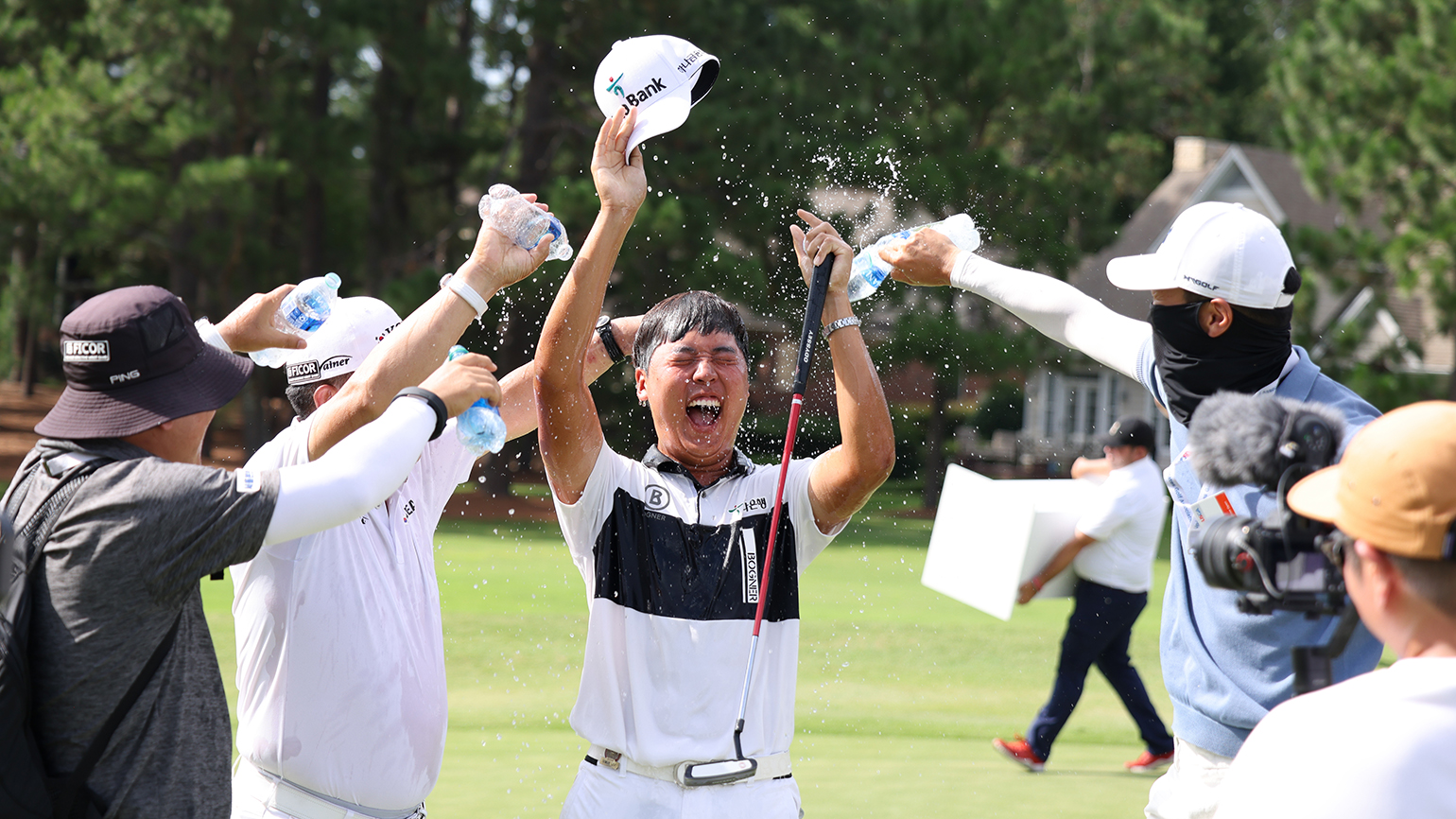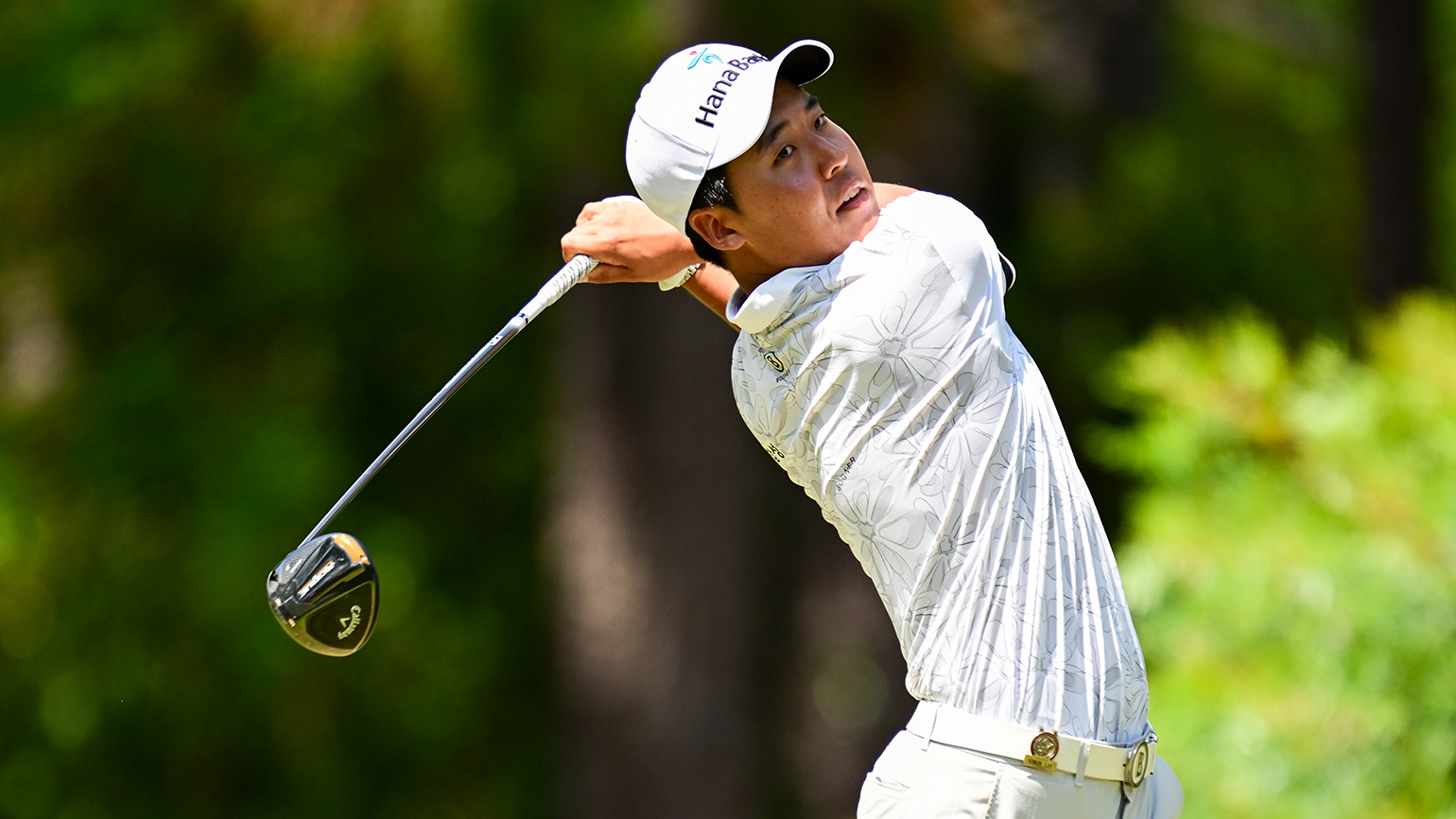Jackson Gains Insight, Inspiration from Fellow Competitors
By Ron Driscoll, USGA

With a form of muscular dystrophy that went undiagnosed for years, Ryanne Jackson is gaining valuable perspective this week. (Jeff Haynes/USGA)
U.S. Adaptive Open Home | Men's Scoring | Women's Scoring
Perspective is an important insight to gain, and a good share of it has come to Ryanne Jackson this week at the inaugural U.S. Adaptive Open Championship.
Jackson, 24, of St. Petersburg, Fla., who is making her USGA championship debut and completed two matching rounds of 80 over the first 36 holes, was diagnosed with a form of muscular dystrophy as a freshman at Gardner-Webb University in Boiling Springs, N.C.
“It was really hard to overcome at first, being young and learning that there are limitations with what I am able to do career-wise,” said Jackson. “But being here, around a lot of people who have no resentment for what has happened to them, or what they were born with, is pretty refreshing and has kind of helped me accept my diagnosis more than I had.”
Jackson played basketball and golf throughout high school, and despite excelling on both the court and the course, she knew that something was wrong.
“I was a very good basketball player, but I’d definitely say I was made fun of because I was awkward when I ran, and I was off-balance a lot of times,” said Jackson, who like her two older sisters, was coached by her father, D.J., in both hoops and golf at Northside Christian School in St. Petersburg. “It often came off to others as if I was being lazy. It didn’t feel like my lack of speed really mattered, because I was a pretty good shooter and I understood where I was supposed to be on the court.”
It wasn’t until she was in college that she was diagnosed with scapuloperoneal muscular dystrophy and found out that some career paths she was considering would not be possible.
“I had always thought that the military would be an option for me,” said Jackson. “But because I have no dorsiflexion in my ankles and I now struggle to lift my arms over my head, that’s obviously something I can’t do. I also definitely fatigue a lot more.”
Jackson felt a tiny sense of relief – and pride – once she knew what she had been overcoming while playing sports all those years.
“When I finally got my diagnosis, I was kind of like, oh, so that’s why I’m this way,” said Jackson. “Looking back, it made me appreciate what I was able to accomplish a lot more, which was nice.”
Jackson has received plenty of support from the golf community, including a couple of prominent names.
“I reached out to [PGA Tour pro] Morgan Hoffmann, which was kind of a cool experience, and also to Keegan Kilroy, another golfer with muscular dystrophy who plays in a lot of these adaptive tournaments,” said Jackson. “I redshirted my freshman year of college, and that’s when I reached out to Casey Martin [the men’s golf coach at the University of Oregon, who sued the PGA Tour in 1999 to be allowed to play in a cart due to a birth defect in his right leg]. He encouraged me to look into getting a cart, and he also read my statement to the NCAA when I petitioned for one. He really inspired me to continue playing in college.”
Jackson’s petition was granted, and she completed her college career as a graduate student last spring at Eastern Illinois University. Jackson, who works in the golf shop at Seminole Lake Country Club, will start her new career as a high school history teacher next month at Northside Christian, her alma mater, where her father still coaches golf.
All of that led to this week and her USGA championship debut. Her identical Rounds 1 and 2 also included matching nines of 39 (front) and 41 (back), but she took drastically different routes to get there.
“I figured coming out here that, considering the yardages we typically play in college, that I might have a chance to shoot some good scores,” said Jackson, who has Eastern Illinois teammate Mckenzie O’Brien as her caddie. “But I felt like what went wrong [on Monday] went right today, and vice versa. On Monday, I hit the ball about as good as I can, but I had 40 putts. I’m excited for one more day to see if I can pull it all together for a solid round.”
Jackson, who has a 3.7 Handicap Index®, is solidly in second place among the 18 females in the field, four strokes behind Kim Moore (76-80) and 12 strokes ahead of the next-closest player in pursuit of the trophy for this inaugural championship.
“It’s so awesome to have everyone here in one place,” said Jackson, whose parents and older sister, Danielle and her husband, are here rooting her on. “I played with Annie [Hayes, of Lee, Mass.], who is a seated player, and I was thinking, I thought I had it hard, and I could never do that. It’s crazy to think that so many people have overcome so much.”
There’s that perspective again, along with the appreciation that continues to shine through during a momentous week at Pinehurst.
Ron Driscoll is the senior manager of content for the USGA. Email him at rdriscoll@usga.org.
RELATED

Jul 19, 2022
USGA Partners


